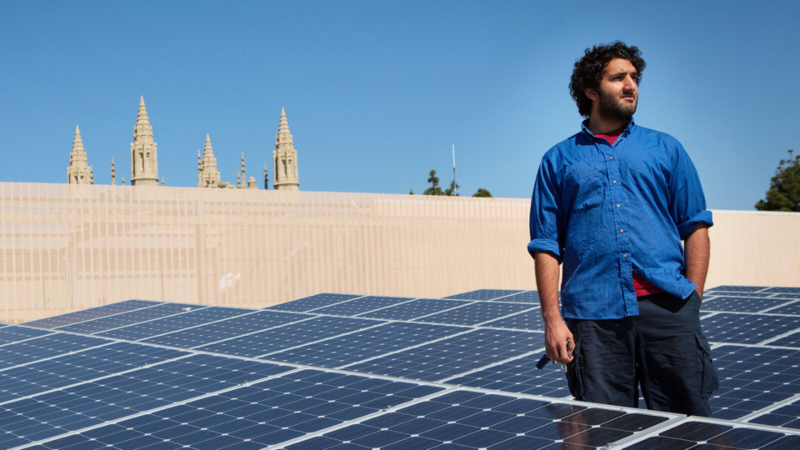
climate change, energy & technology, sustainable business
UCLA Decarbonization Study Paves the Way for a Greener Campus
UCLA is leading the charge in combating climate change with its yearlong decarbonization study, showcasing its commitment to sustainability. This proactive initiative aims to reduce or eliminate carbon emissions, aligning with global efforts to address climate change.
Since 2009, UCLA has made significant strides in reducing its carbon footprint, despite a notable increase in applicants and enrollment. Through the adoption of low-carbon, renewable energy sources such as wind, solar and hydropower, the university has cut emissions by 25%, resulting in substantial energy cost savings of $400 million.
In 2013, UC President Napolitano announced that the University of California would be the first research university to achieve carbon neutrality by 2025. To expedite this transition away from fossil fuels, the UC has set new, more ambitious climate action objectives.
Aligned with the University of California’s goal to achieve carbon neutrality by 2025, UCLA’s decarbonization efforts are part of a broader strategy to reduce total greenhouse gas emissions by 90% by 2045, in line with California’s net-zero carbon pollution targets.
The decarbonization study, funded by the state of California, is a collaborative effort involving consultants from WSP and a campus Decarbonization Task Force comprising faculty experts, students and staff. This comprehensive approach not only addresses technical aspects but also considers equity and climate justice, ensuring that the transition to low-carbon energy sources benefits the entire UCLA community.
UCLA’s commitment to decarbonization extends to community engagement, with initiatives like tabling events and town hall meetings providing opportunities for Bruins to learn, provide feedback and ensure diverse perspectives are considered.
On March 11, 2024, two Town Hall meetings were conducted. The video below combines the presentation from one session with the Question and Answer segment from both sessions.
The university’s efforts highlight its role as a global leader in sustainable practices, setting an example for institutions worldwide. By embracing cleaner energy sources and reducing carbon emissions, UCLA is paving the way for a greener, more sustainable future.
For more information about UCLA’s decarbonization study and to actively participate, please visit the Decarbonization Study Page.
FAQs:
- How can UCLA’s decarbonization efforts benefit the environment?
UCLA’s decarbonization endeavors can significantly reduce carbon emissions, leading to a healthier planet and a more sustainable campus environment. - What role does community engagement play in UCLA’s decarbonization study?
Community engagement ensures that decarbonization efforts are inclusive and transparent, receiving valuable feedback from the UCLA community. - Why is it important for universities like UCLA to focus on decarbonization?
Universities like UCLA serve as influential institutions that can lead by example in adopting sustainable practices, influencing a broader societal shift towards decarbonization. - How does UCLA’s decarbonization study align with California’s climate goals?
UCLA’s decarbonization study aligns with California’s climate objectives by aiming to reduce greenhouse gas emissions and support the state’s net-zero carbon pollution targets. - What are some key achievements of UCLA in reducing its carbon footprint?
UCLA has cut emissions by a quarter, saved $400 million in energy costs, and implemented over 100 solar projects on campus as part of its efforts to minimize its carbon footprint.
